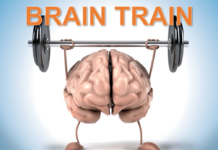Use it or lose it, the saying goes. But how often do you have to use muscles to not lose them? More to the point, how fast do you lose muscle mass when not regularly lifting weights? We checked out the research to answer that and other questions about losing and, more importantly, maintaining or regaining muscle mass.
LOSING WEIGHT AND LOSING MUSCLE
When you shed pounds, there are three general categories from which you can subtract: water, body fat, and muscle. Water weight can be easily sweat away or lost via restriction and/or diuretics, but only temporarily. Fat is your body’s preferred stored energy source, so it will come for it first in a calorie deficit. Because muscle mass is crucial for functions and movement, your body tends to come for it last, and this is especially true if you consume adequate protein and regularly strength train. That’s the good news. The bad news is you can lose muscle mass without restricting calories. From inactivity alone your muscles will atrophy. If you’ve ever had a limb in a cast for months you know this. Muscles also atrophy naturally as we age and our hormonal levels decrease. They can also atrophy from a low protein intake, even if your diet’s calorie intake is high.

HOW FAST DO YOU LOSE MUSCLE?
Let’s go back to that inactivity reason for losing muscle, because most of you reading The Barbell probably workout regularly with weights. But what happens if you take a week off for vacation or a month or more off because of a new baby or job or an illness?
There is research that indicates you can lose muscle mass quickly. According to one study, it can take as little as one week to lose as much as two lean pounds, if you’re completely immobilized. But there’s a couple of caveats about this. First, completely immobilized. Hopefully, you’re never so injured or ill that this occurs. If you’re up and living a normal life, but avoiding the weights, you’ll hold onto your gains longer. Secondly, studies show, the earliest “muscle loss” tends to be from intramuscular water loss and glycogen depletion, and this can be regained quickly when you begin hitting the weights again.
For those of us not completely immobilized, research suggests that significant muscle and strength loss begins with about three weeks of inactivity. And if you’re an endurance athlete, it takes about two weeks before seeing a significant decrease in abilities.
REGAINING LOST MUSCLE
Again, much of the early muscle loss is actually liquid loss that you can easily regain when you begin training again. But as for significant muscle tissue loss, in one study even after a seven-month break, participants regained their strength with only six weeks of regular training. Muscle memory is real and allows trainers to regain lost gains more quickly compared to when they initially started training. The neural pathways and muscle fiber structures established during the previous training period are still present in the brain and body, facilitating faster muscle hypertrophy and strength development. This also suggests that those who gained more muscle and strength from performance-enhancing drugs will, as a scientist studying muscle memory said, “produce a permanent increase in users’ capacity for muscle development.” However you achieved your lost gains, they will come back more easily than if you never had them before.

HOW FAST DO YOU LOSE MUSCLE: FAQS
When you stop exercising, does muscle turn into fat?
No. Muscle and fat are two distinct cell types with distinct functions. One cannot turn into the other. That said, if you completely stop exercising and also eat too many calories, you will lose muscle and you may also gain fat where there was previously muscle, making it seem as if your muscles “turned into” fat.
What is the fastest way to lose muscle?
Stay as immobile as possible and severely restrict your protein and calories.
What is the best way to maintain muscle when on an extended exercise break?
Eat enough calories daily to maintain your body weight and make sure you get an adequate amount of protein daily—at least one gram per pound of your body weight (example: 200 grams daily if you weigh 200 lbs.). Stay hydrated, and stay active and mobile, even if you’re avoiding the weights. People on vacation tend to do a lot of walking (amusement parks, museums, sightseeing…), which is good. If you’re home, try to do the same, but even activities like yardwork and housework can keep you active.
What is the best way to regain lost muscle?
Increase your protein intake and ease back into the weight-training. Then, over subsequent workouts, steadily increase your weights and workout intensity. Due to muscle memory, you should be able to regain your strength and muscle much quicker than you lost it.
















































